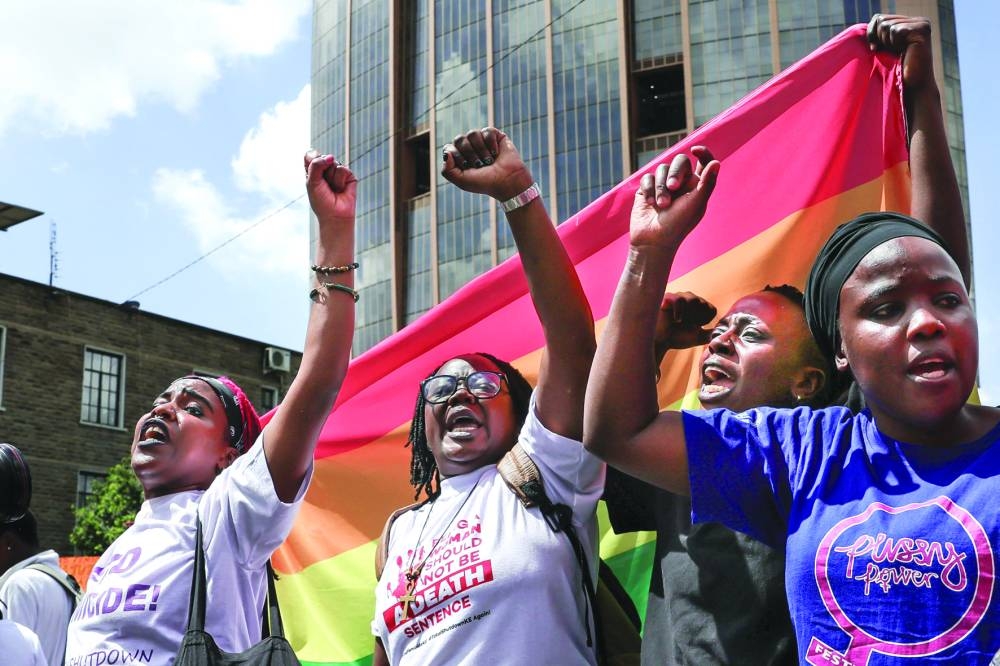Several hundred people marched in Nairobi yesterday to protest against femicide in Kenya where more than a dozen women have been killed this month in cases that shocked the nation.
The campaigners took to the streets of the capital holding placards that read “Being a woman should not be a death sentence” and “Patriarchy kills” while others featured names and photographs of the victims.
“Stop killing us,” they chanted as they marched towards parliament, bringing traffic to a halt in Nairobi’s central business district.
At least 16 women have been killed in Kenya this year, according to media reports, shining a spotlight on violence against women which the government has described as “rising”.
“Femicide is the most brutal manifestation of gender-based violence,” Amnesty International’s Kenya chapter said in a statement ahead of the march.
“It is unacceptable and must never be normalised,” the rights group said, calling on authorities to expedite investigations and prosecution of the perpetrators.
At the protest yesterday, Terry Wangare, a communications officer, said it is “time for Kenya to stand up and make a decision”.
“Nobody cares. If you complain, you are bad,” the 32-year-old told AFP.
Student Faith Claire Wanjiru, 23, who was at her first protest, said she is “angry” and is not going to tolerate the violence.
“Taking someone’s life should not be anyone’s work,” she said.
Organisers of the protest said other marches took place in 10 other regions, including the lakeside city of Kisumu and the Indian Ocean port city of Mombasa.
More than 30% of women in Kenya experience physical violence and 13% experience some form of sexual violence, according to a government report last year.
Human rights watchdogs are convinced that the number represents just a fraction of actual cases.
There were at least 152 cases of femicide in Kenya last year, according to non-profit Femicide Count, which keeps a tally of only reported incidents.
In 2022, some 725 women and girls were murdered in the East African country, according to a report from the UN Office on Drugs and Crime.

Protesters shout slogans as they march through Nairobi's Central Business District at a demonstration over an alarming rise in murder of young women.
